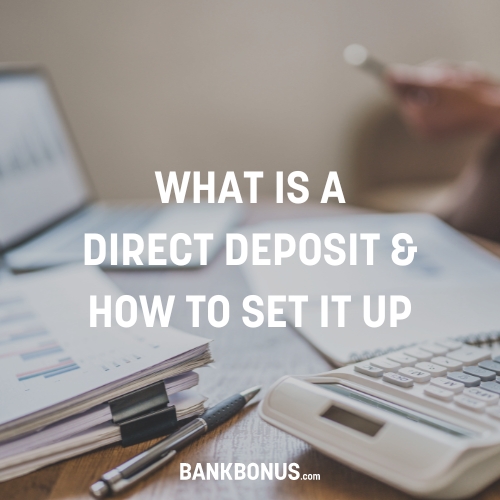If you’re looking to take your finances to the next level, having your own private banking team is something you might want to consider.
Both business owners and private individuals use private banking services to manage their finances and other assets, including real estate.
While private banks and wealth management firms have a lot in common, they offer a very different set of services even if there are overlaps at times.
In this article we cover everything private banks offer, who needs private banking, and why you might want to consider a private banker to manage your finances.
What Is Private Banking?
Private banking is banking for high-net-worth individuals. This is slightly different from the banking we know, called personal banking or high street banking. We cover these differences in the following sections.
In private banking, a financial institution such as a bank or a department within a bank offers tailored banking services and products. These services and products are usually reserved for people who have a lot of money and can include brokerage services, tax planning, wealth management, and some others.
Essentially, private banks offer a one-stop shop for these high-worth individuals regarding their banking needs and requirements. The idea is for the bank to cover as many services as possible, with one bank relationship manager being the point of contact for anything that the customer might need.
This can be a huge time saver as the customer will only need to call one person to have their needs attended to. Not all private banks will cover all of the services, and some banks take it a step further by offering several additional related services.
Many of the top national banks in the United States, like Chase, Wells Fargo, and Bank of America offer private banking.
We will cover this in more detail later in the article.
What Is The Difference Between Personal And Private Banking?
Personal banking is banking for individuals and is the banking we all know. In personal banking, the bank offers a range of products and services to customers. The customers can pick and choose which products and services they want, and if they qualify for them, they get that product or service.
This is also known as high street banking and digital banking. High street banking generally refers to the brick and mortar banks with their local branches. Digital banking, on the other hand, refers to online banks that are becoming increasingly more common in the U.S.
Private banking takes a more customized approach. Instead of offering a range of products and services, the bank may tailor what they offer for that individual.
What Do Private Banks Offer?
Private banks offer a ton of services. Some of these you’ll find in a personal bank – while others are designed especially for people who qualify for private banking. While not all private banks might offer all of the services listed below, these are most commonly found at private banks.
Private banks sell themselves by promising to be a one-stop shop for all of someone’s financial needs. This means that private banks can help people save time – something that people with a lot of money tend to appreciate a lot.
There is also an element of exclusivity. Just like one of the reasons that Business and First Class airplane tickets are coveted is their exclusivity and the nice perks that come with it, private banks offer many perks and exclusivity to their customers.
Either way, here are some of the services that private banks offer to their customers:
- Relationship manager – A single point of contact for customers who, like a concierge, attend to their financial needs.
- Bank accounts – From savings accounts and checking accounts to MMA and IRAs, private banks offer many, if not all, of the accounts you’ll find at traditional banks.
- Wealth management services – Strategic advice on how a client’s wealth can be managed to address and attain financial goals.
- Financial planning – Advice on how to manage your financial future and retirement.
- Advisory services – Advice on how to structure capital, fund different options, as well as reduce costs.
- Estate planning – Help on how wealth is to be distributed once the client passes away.
- Investment management – The handling of clients’ financial assets, including buying and selling.
- Portfolio management – Management and planning of investments that make up a client’s portfolio.
- Legal advice – Advice on legal affairs that have to do with the client’s financial assets.
Being a private bank customer also comes with many perks such as preferential pricing, better foreign exchange rates, and invitations to exclusive events.
How Much Do You Need For Private Banking?
Private banking requirements change from one bank to another, and not all banks might accept all people. Generally speaking, there are five categories of people who are eligible for private banking.
While you might be inclined to think that it’s all about the money, in reality, this is not always the case. In fact, in 2 out of 5 categories, it’s the potential to have money in the future that makes the person eligible for private banking.
These categories and eligibility criteria are not set in stone. They are more of a loose definition of what industry insiders and professionals working in the sector agree to be the norm across different banks.
It is also worth noting that people are categorized according to the money they have. But there is a caveat here. It’s not just any money but rather the worth of investable assets.
What are investable assets?
Money comes in two forms – investable assets and tangible assets. While to the average person, it might not make a difference in which form money is, it makes a big difference to a private bank. But before we get into why this is the case, let’s look at the difference between them.
Tangible assets: Tangible assets are those things that cannot easily be converted into cash. These include property, cars, art, jewelry, and other things that may be very expensive or not. A private bank will not take these into account because they cannot be invested. No one can deposit their house at the bank, so these tangible assets get left out.
Investable assets: Investable assets are those things that can easily be converted into cash – the exact opposite of tangible assets. These include hard cash, money in a bank account, stocks, investments, and retirement accounts, among other things.
The bank uses these types of assets when calculating how much they are worth, and these are the type of assets that ultimately they can make money on.
This is important because when a private bank categorizes you, they do so based on how much money you can invest with them. Remember, a bank isn’t going to offer you a better service just because you have a lot of money, but rather because you can help them make a lot of money.
Banks are ranked by their’ assets under management – the total amount of investable assets of other people that they are managing.
How Private Banks Categorize Customers
Let us now look at how private banks might categorize their customers:
- Ultra-High Net Worth – Those with investable assets worth $10,000,000 or more.
- High Net Worth Individuals – Those with investable assets worth between $1,000,000 to $10,000,000.
- Children of High Net Worth Individuals – Those whose parents have investable assets worth $1,000,000 or more.
- Mass Affluent Individuals – Those with investable assets worth between $100,000 to $1,000,000.
- Emerging Affluent Individuals – Those with investable assets worth under $100,000 but have a good education and a career path that promises to help them reach higher categories.
Benefits Of Private Banking
Private banking clients get to enjoy several different benefits. Depending on your financial and lifestyle choices, these benefits can prove to be very useful.
- Privacy – Having a private banker means that you will get more privacy and better overall service.
- Pricing – Better pricing models such as better interest rates are not uncommon with accounts and investments still generally insured by the FDIC and SPIC.
- Services – Private banks offer many financial services all under one roof, helping you get more done with your money.
- Efficiency – Since private banks act as a one-stop shop, you can expect to get a more efficient service.
Disadvantages Of Private Banking
While private banking has many advantages, just like with everything, there are some cons. While the advantages might outweigh the disadvantages (otherwise, private banks wouldn’t still be in business), they tend to be very personal.
Even though a private bank acts as a one-stop shop, you might not necessarily get the best people in every department. People tend to leave their jobs, which means your relationship manager might leave the bank, leaving you with a new bank manager who does not know you well.
Is Private Banking Right For You?
Private banks are not for everyone, their services are reserved for those who are either very wealthy or on their way to amassing wealth.
If you fall within this category (or aspire to), there are many things to look forward to when joining a private bank.
It is not that the products and services the private bank offers aren’t available anywhere else. While banks like J.P. Morgan and Wells Fargo may offer many services under one roof, you’ll find the same services at different brokerages and other financial institutions. The benefit here is that everything you need can be serviced by one company that offers one point of contact.
This is not the only benefit. Better pricing structures and easier access to ancillary services can be of great benefit. Of course, you’re free to pick and choose the services you want, so you might not need to fire your broker-dealer yet.
Financial planning is important, and doing this with the big picture in mind can help you get the best bang for your buck. This is perhaps the one best thing about private banks and, if you afford it, makes them well worth the consideration.





Comments are closed.
Comments are closed here.